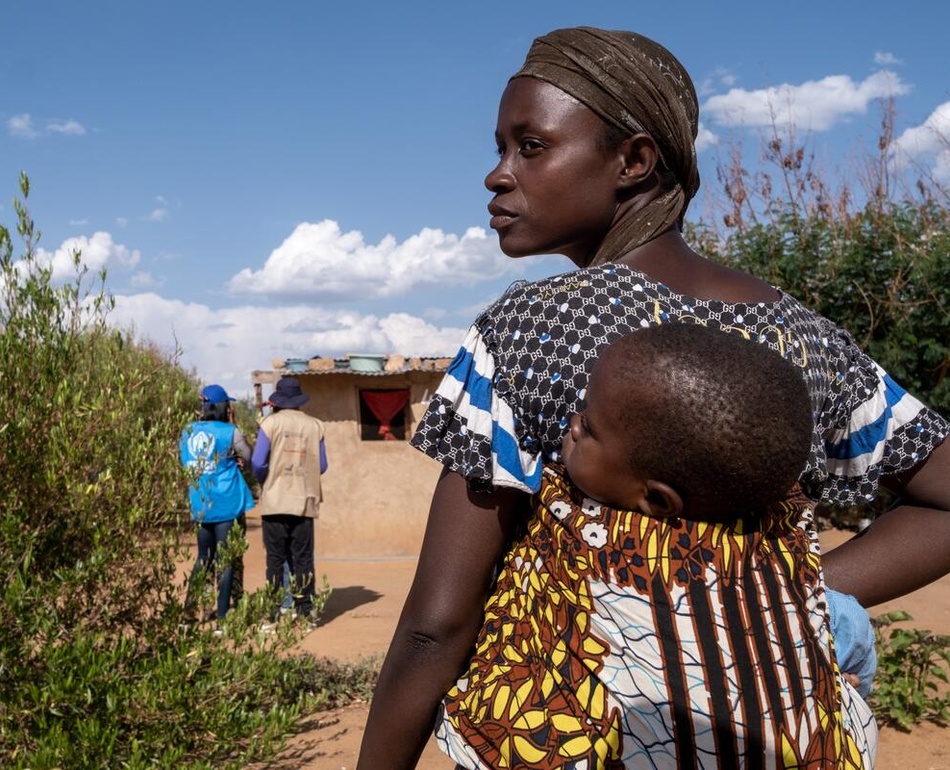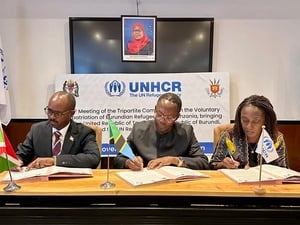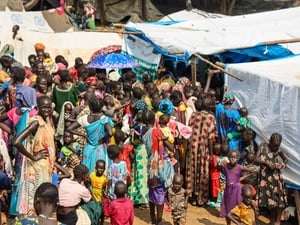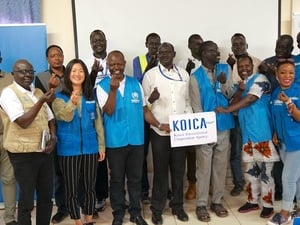Refugees in Namibia at risk of food insecurity, finds UN report
Refugees in Namibia at risk of food insecurity, finds UN report

Refugees are facing stark choices as unseasonal weather has destroyed crops in Osire.
Windhoek, 11 December
In response to the growing concerns surrounding food insecurity among refugees in Namibia, UNHCR, the UN Refugee Agency, and the World Food Programme are today releasing the findings of a report on food security for refugees in Osire settlement.
The report finds that nine in ten households are unable to meet their livelihood needs, and half of the refugees surveyed are unable to meet their basic food needs. Without urgent support, refugees in Osire risk exposure to even more critical levels of poverty and hunger.
It also highlights that refugee households are more likely to experience food shortages compared to Namibian citizens. Top of Form Female-headed households are more likely to experience food shortages compared to their male counterparts, with 82% facing poor or borderline poor food consumption while 74% of male-headed households face similar challenges. Contributing factors to the poor food consumption include limited economic opportunities and depleted food rations. Monthly rations often last between fourteen and twenty-one days, and irregular or delayed distributions due to budget cuts are common.
The result of a joint assessment mission and minimum expenditure basket survey carried out earlier this year, the report lays out a strategy to provide targeted food assistance for refugees and highlights the need to create avenues for economic empowerment through skill development and employment opportunities within and beyond the camp.
"The findings of the report are quite alarming. We are committed to ensuring that the basic needs of refugees are met, while promoting their integration into the broader national development plans," emphasized Monique Ekoko, UNHCR Representative for the South Africa Multi-Country Office. "Our joint advocacy and resource mobilization strategy with the government aims to secure vital humanitarian assistance, including food and livelihood support, based on the gaps identified in the current system."
The report points towards the benefits of transitioning to cash transfers to enable refugees to purchase their own goods, both food and non-food essentials. This approach aims to improve the efficiency of aid delivery while maintaining the dignity and autonomy of the refugee community.
The initiative represents a significant step forward in addressing the challenges faced by refugees in the camp, reflecting the joint commitment of the government and the United Nations to uphold the rights and dignity of all individuals within the refugee community.
The link to the full report can be found here: https://www.unhcr.org/africa/media/food-security-refugees-namibia-joint-assessment-mission-minimum-expenditure-basket-report
For media inquiries and photos, please contact: Fafa N’Konou in Windhoek [email protected] or Laura Padoan in Pretoria [email protected]









